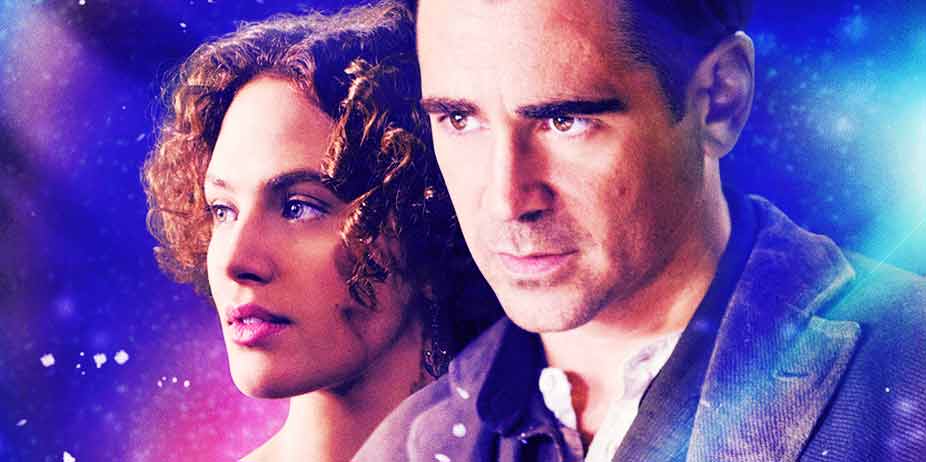 Winter's
Tale (2014)
Winter's
Tale (2014)
Some movies are misunderstood by audiences. They are not quite what the reviewer expects and are at times so complex as to have their heavy themes go over the head of the audience. The sensation as this film ends is one, for me, of intense inner meaning and truth, with the sneaking suspicion that I can only scrape the surface of its profoundness. It is such a strange and wonderful blend of fantasy and myth that I watched it twice before trying to write about it.
Peter Lake (Colin Farrel) has an unusual childhood: while his parents were sent home again across the sea for being ill when they tried to immigrate to America, he was set adrift in a small toy boat. He washed up on the shore of New York City, and was raised from childhood by Pearly Soames (Russell Crowe). But, as Pearly says, Peter started developing morals ... not wanting to shed blood and create chaos in the lower city through his thieving, so the two of them fell out. Their argument comes to a head in an abandoned ally, where Peter is mysteriously saved by a white horse. Sensing the animal is more than he appears, Peter decides to take him with him when he leaves town ...
And then he meets Beverly Penn (Jessica Brown-Findlay), a beautiful young woman dying of consumption who sees the world for all its unique potential and colorful hues. He is instantly besotted, and sets out to save her if he can when Pearly has a vision that Peter will use his "miracle" to save a redheaded girl. Though the story seems straightforward and was sold to me as the tale of a young man who transcends time to save the woman he loves, the second half was not what I expected. It unfolds as a love story but also a tale of how our lives carry eternal significance. Its message is that we will not, and cannot, die until we have served our purpose in life, and that no life is worth more than another; each is wholly unique and equal in that it deserves to be saved.
Even though the mythology of the film is skewed (it merges into a story of angels and demons), the film is a semi-allegory that illustrates the reason Christ came to earth to save us. It is an epic battle between good and evil and although it contains some unfortunate moral problems that might raise a few Christian brows, it is an engaging, emotional experience that resonated with my soul more than any other story in the last decade. Its themes are deep, its concepts unusual, and I suspect that it will draw me back to it time and again, in the hope of unlocking more of its fantastical wonders.
Sexual Content:
Several scenes in which we see Beverly partially nude (waist-up
from the back, a far off shot of her backside); she and Peter
have a long love scene that includes kissing and some movement.
Language:
Two abuses of Jesus' name, one s-word, a few mild profanities.
Violence:
Men beat up on one another; demons are destroyed through
violence.
Other:
It contains a blend of Christian mythology (Lucifer, and
demons), paganism, and other religions, which mention eternal
salvation but conclude that humans can take their place in the
heavens as stars.
